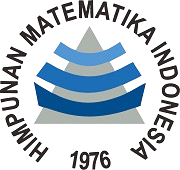Development of E-Module Based on Mathematical Literacy Skill in Statistical Materials
DOI:
https://doi.org/10.30736/voj.v6i1.951Keywords:
E-Module Development, Mahematical Literacy, StatisticAbstract
This research aims to produce an E-Module with math literacy-based questions that are valid and practical for 10th-grade statistics in SMA Negeri 3 Padang. The type of research conducted is development research using the ADDIE development model. Data analysis techniques include interview analysis, E-Module validation analysis, and E-Module practicality analysis. The results of the research show that mathematics learning using the E-Module, which facilitates mathematical literacy questions, is both valid and practical. Based on the data analysis, it was found that the developed E-Module had a validity score of 92.31%, categorized as highly valid. The final practicality score for teachers was 85%, categorized as highly practical, and the final practicality score for students was 88.26%, also categorized as highly practical.
Downloads
References
Afrilina, A. R., Haryono, Y., & Jufri, L. H. (2022). Analisis Kemampuan Literasi Matematis Siswa dalam Menyelesaikan Soal AKM pada Materi Statistika. JKPM (Jurnal Kajian Pendidikan Matematika), 8(1), 15. https://doi.org/10.30998/jkpm.v8i1.14843
Agustina, I. (2019). Pentingnya Berfikir Kritis Dalam Pembelajaran Matematika Di Era Revolusi Industri 4.0. Jurnal Pendidikan Indonesia, December 2019, 17.
Andiani, D., Hajizah, M. N., & Dahlan, J. A. (2020). Analisis Rancangan Assesmen Kompetensi Minimum (AKM) Numerasi Program Merdeka Belajar. Majamath: Jurnal Matematika Dan Pendidikan Matematika, 4(1), 80–90.
Cesaria, A., & Herman, T. (2019). Learning obstacle in geometry. Journal of Engineering Science and Technology, 14(3), 1271–1280.
Jelvindo, F., Cesaria, A., & Jufri, L. H. (2022). Learning Obstacles to Mathematical Literacy Skills of Statistical Material in Class X. Journal of Asian Studies: Culture, Language, Art and Communications, 2(1), 1–5.
Kurnia, T. D., Lati, C., Fauziah, H., & Trihanton, A. (2019). Model ADDIE Untuk Pengembangan Bahan Ajar Berbasis Kemampuan Pemecahan Masalah Berbantuan 3D. Seminar Nasional Pendidikan Matematika, 1(1), 516–525.
Maghfiroh, S., & Rohayati, A. (2020). Analisis Kemampuan Representasi Matematis Siswa Smp Pada Materi Segiempat. Jurnal Penelitian Dan Karya Ilmiah, 10(1), 64–79. https://doi.org/10.33592/pelita.vol10.iss1.373
Meliana, F., Herlina, S., Suripah, S., & Dahlia, A. (2022). Pengembangan Bahan Ajar E-Module Matematika Berbantuan Flip Pdf Professional pada Materi Peluang Kelas VIII SMP. SJME (Supremum Journal of Mathematics Education), 6(1), 43–60. https://doi.org/10.35706/sjme.v6i1.5712
Purba, Y. A., & Harahap, A. (2022). Pemanfaatan Aplikasi Canva Sebagai Media Pembelajaran Matematika Di SMPN 1 NA IX-X Aek Kota Batu. Jurnal Cendekia : Jurnal Pendidikan Matematika, 6(2), 1325–1334. https://doi.org/10.31004/cendekia.v6i2.1335
Puspasari, R., & Suryaningsih, T. (2019). Pengembangan Buku Ajar Kompilasi Teori Graf dengan Model Addie Aplikasinya penulis Kiki Ariyanti. 3(1), 137–152.
Rayanto, Y. H., & Sugianti. (2020). Penelitian Pengembangan Model ADDIE Dan R2D2:Teori Dan Praktek (T. Rokhmawan (ed.)). Lembaga Academic & Research Institute.
Razak, A., Amri, Z., & Halomoan, T. (2023). Pengembangan Bahan Ajar E-Module Dengan Model ADDIE Berbasis FlipPdf Profesional Materi Bangun Ruang Sisi Lengkung Kelas IX SMP Jambi Medan. 19, 63–70.
Rezky, M., Hidayanto, E., & Parta, I. N. (2022). JENJANG SMP Mahasiswa Pascasarjana Universitas Negeri Malang , Malang , Indonesia Dosen FMIPA Universitas Negeri Malang , Malang , Indonesia E-mail : Abstrak PENDAHULUAN Kemampuan literasi numerasi penting untuk dikembangkan dalam dunia pendidikan , khsus. 11(2), 1548–1562.
Riduwan. (2010). Belajar Mudah Penelitian untuk Guru-Karyawan Dan Peneliti Pemula. Alfabeta.
Seruni, R., Munawaoh, S., Kurniadewi, F., & Nurjayadi, M. (2019). Pengembangan Module Elektronik (E-Module) Biokimia Pada Materi Metabolisme Lipid Menggunakan Flip Pdf Professional. JTK (Jurnal Tadris Kimiya), 4(1), 48–56. https://doi.org/10.15575/jtk.v4i1.4672
Tegeh, I. M., Jampel, I. N., & Pudjawan, K. (2014). Model Penelitian Pengembangan. Graha Ilmu.
Yunus, A., Danial, M., & Muharram, M. (2022). Pengembangan E-Module Berbasis Inkuiri Terbimbing untuk Meningkatkan Kemandirian Belajar dan Hasil Belajar Peserta Didik pada Materi Koloid. Chemistry Education Review (CER), 5(2), 188. https://doi.org/10.26858/cer.v5i2.32728
Downloads
Published
How to Cite
Issue
Section
License
Copyright (c) 2024 Shindy Amelia Efendi, Yulia Haryono, Anna Cesaria

This work is licensed under a Creative Commons Attribution-NonCommercial-ShareAlike 4.0 International License.
Copyright:
Authors who publish their manuscripts in this Journal agree to the following conditions:
- Copyright of any article on Vygotsky: Jurnal Pendidikan Matematika dan Matematika is held solely by the author under the Creative Commons Attribution 4.0 International license (CC BY NC SA).
- Authors can submit papers separately, arrange non-exclusive distribution of manuscripts that have been published in this journal into other versions (e.g. sending to the author's institutional repository, publication in a book, etc.) by acknowledging that the manuscript has been published for the first time in Vygotsky: Jurnal Pendidikan Matematika dan Matematika.
License:
Vygotsky: Jurnal Pendidikan Matematika dan Matematika is published under the terms of the Creative Commons Attribution 4.0 International License (CC BY NC SA). This license permits anyone to copy and redistribute this material in any form or format, compile, modify and develop this material for any purpose as long as it is not for commercial purposes. Additionally, anyone must provide credit and distribute contributions under the license of the creator of the original work.







